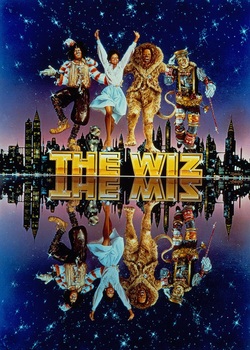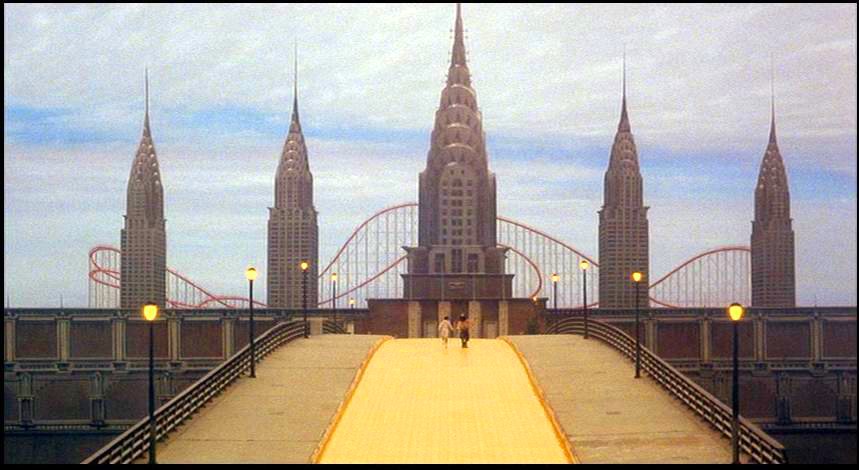
If I have an absurd love of musicals, it probably started with the modernized, urbanized tale of of a young woman named Dorothy, and her adventure as she struggled to find the true meaning of home. As young girls, we were meant to empathize with the journey of Dorothy, as she tried to make it home, and helped others find what they already had (the Scarecrow had always been intelligent, the Tin Man indeed had feelings, and the Lion's courage surfaced when it needed to), even if they didn't realize it. We understood Dorothy (even if she was a kindergarten teacher instead of a teenager, a concession made due to the casting of then 33-year old Diana Ross in the lead role) and certainly empathized with her quest, although we would not have to deal with career trajectory issues for another dozen years or so. When I started watching the movie again with my own children some years ago, I began to notice themes, bits of dialogue and song lyrics I hadn't noticed before.
The many references to our urban reality, although handled with humor, pointed to the very real situations we faced on a daily basis. The munchkins turned into permanent graffiti for painting on the walls of a park, showed children paying the ultimate price for what came to be called tagging, although back in the late 70's, they really were trying to make art, not just marking gang territory. The Tin Man who hid his feelings behind jokes could be any of us who hide our true feelings in order to survive in our day to day lives. Feelings are thought to be your enemy, and a sign of weakness, so we stifle them by whatever means necessary, in his case with humor, but occasionally with food, alcohol or worse. The Lion's loud display of bravado, to cover up the fact that he felt he had no courage, was easily echoed in the legions of young men and women who resorted to violence and crime, based on a false, but popular, vision of what they thought courage looked like.
As far back as the 1950's, a crab barrel mentality, in which crabs try to keep each other from climbing out of the barrel by pulling them back in, has existed in the darker corners of urban centers. Ostracism awaited anyone who dared display that they were academically talented, and/or wanted to rise above their circumstances. Especially in lower socio-economic areas, reading was considered uppity, and the reader was thought to be either trying to be better than everyone else, or wasting their time, since they were unlikely to get a much better job than menial work, based on where their current place in life was. There was, some people believed, no escape from the life your parents led, so why even try? The message of the Crows, then, was this: Since the Game of Life is rigged to favor those that were already going to win, don't bother playing. You will lose anyway, and feel worse for having tried.
What was true in the late 1970s is still true today. Rampant anti-intellectualism (say that five times fast!) permeates urban culture. Anyone that strays away from the accepted messages of hedonism (the search for pleasure above all things) and conspicuous consumption (you are what you buy) is regarded with a great deal suspicion and heaping doses of scorn. Popular media feeds us a steady diet of images and music that tell us that we should aspire to look successful on the outside, never mind any education, as we are not expected to accomplish much else. The messages are all wrapped up in pretty packaging as well. Hmm. Hedonism, materialism and negativity all set to a nice beat, with glamorous images. Sound familiar?
I still enjoy this movie. Granted, I now understand both the lyrics and the underlying messages, a perspective that being 35 years removed from the first time I saw it as a child has provided. The positive themes of family and self-determination presented in the film (Dorothy was afraid to make any real decisions, or leave the comfort zone of her aunt's home, until she was thrust into Oz), are what I believe the filmmakers really wanted the viewing audience to focus on. Yes, the other, more negative connotations are there, and while it is good to be aware of them (mindless viewing of ANYTHING is always a bad idea), I believe that the larger point is that we determine our own fate, either by our actions, or lack thereof. Sometimes despite where we started.
And like all journeys, it's always better when we make the trip with friends. And music.

 RSS Feed
RSS Feed
